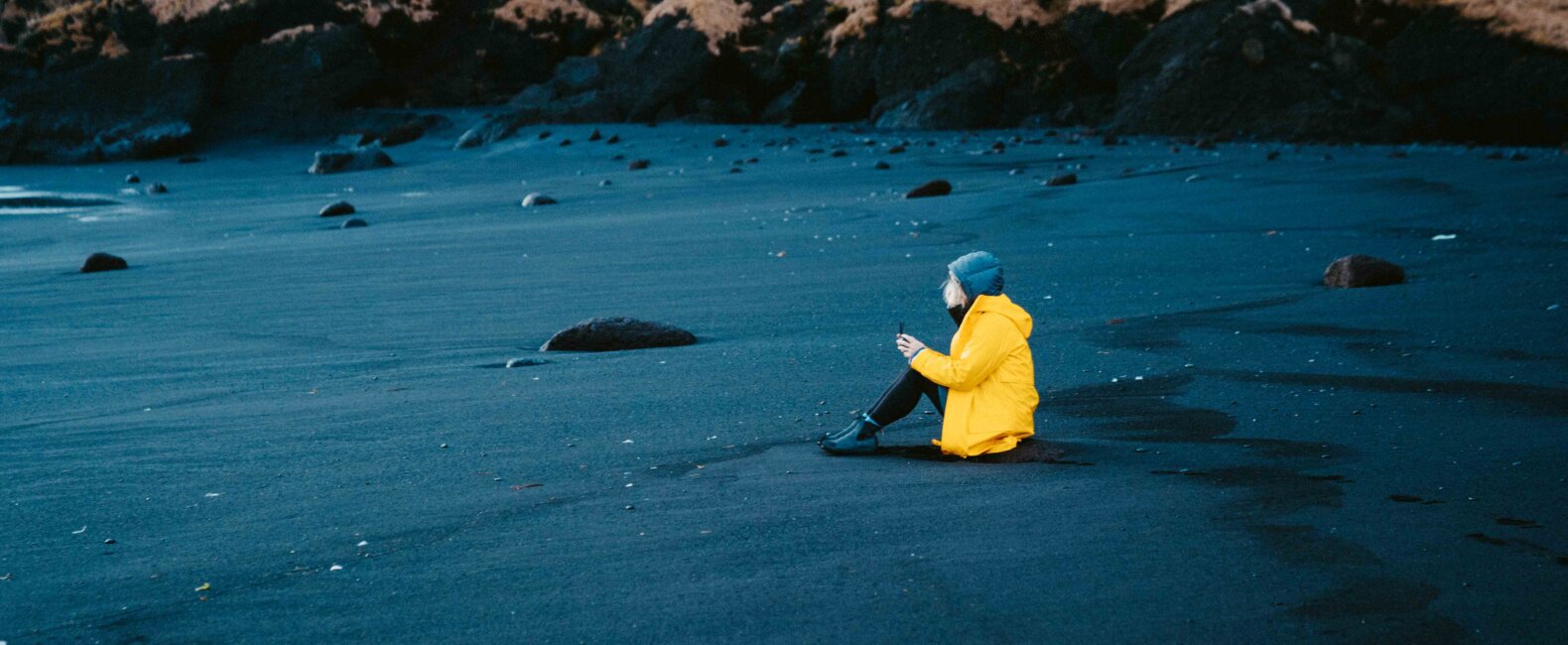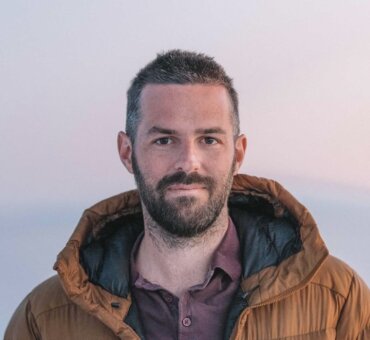As people who tell stories for a living, it’s easy to get lost in the medium. Films can seem different from TV shows. Novels seem different from poetry. And, especially for YouTube, it can seem different from just about anything else. There are subscribers, vlogs, tutorials, channels, influencers, etc. It’s a whole different beast.
Or, at least sometimes we think it’s a whole different beast. It turns out your skills can translate directly to YouTube, with one key skill. We’ll let Iz Harris deliver the good news:
“I do think there’s beauty in that as long as you’re telling a good story, it opens the door for creating whatever you want,” Iz Harris told us. “As long as there’s a beginning, middle, and end, you know? I think there’s a timelessness to it.”
Iz has done a lot of things. She’s created wedding videos, branded content, tutorials, vlogs, and more, which she attributes to “creative ADHD.” We attribute it to being a good creative—and her YouTube channel is blowing up because of it. Her personality, authenticity, and editing make for a compelling package on a consistent basis, but most importantly she can tell a good story. Simple as that. And, as we discuss in this interview, that’s all you truly need as a creator on YouTube.
Once you learn how to tell a solid story, you’ll have a leg up on 99% of the channels out there, no matter how fancy their drones are. We talked with Iz about how she found her way to YouTube, how she consistently tells a good story, and the moment she learned that “vlogger” can be a real job title. Here’s Iz Harris.

Musicbed: How did you transition from wedding films to YouTube?
Iz Harris: I started to get a little bored about two or three years ago. I have what I call creative ADHD, where I just want to make anything and everything. So, I started creating these business stories, telling their story and their products. Then, I quickly got bored of that, hence the ADHD (laughs). All of this was happening while I was making these family documentation videos that were going nowhere. I’d show them to my husband and my kids, maybe my parents.
So, YouTube just made sense then?
I actually never watched YouTube, which sounds bizarre, I know. My husband is a big YouTube watcher, and I’d see him watching it and think, Why? What could be on there that’s so compelling?
I started making these travel videos and got an influx of really kind, interesting comments. I remember thinking there’s no way you can make money off of this. But, I went home and found out there were these people who made travel videos for a living.
I called Johnny and said, “I’m going to be a travel blogger.”
He said, “You mean a vlogger?”
I said, “Sure, I don’t care what you call it, but I’m going to do it.”
You mentioned “creative ADHD.” Can you use that to your advantage?
I think you can. It didn’t necessarily work for me as a business person outside of YouTube. But on YouTube, I think it’s the perfect space to have that and explore it. It’s what I loved about it. I thought I would love documenting my travels, maybe eventually even earning an income doing that or at least have our travels covered. But, what I found to be even more valuable is that when I wake up, I get to decide what I want to make that day. And it’s up to me if it gets made or not.
It’s why I was able to experiment with these random satire videos and these beginner tutorials. We exist in a world now where people are ‘niche-ing’ into their content. It’s like the number-one piece of business advice that’s out there. But, that wasn’t going to be sustainable for me.
I also felt like I didn’t want to train my audience to want just one thing from me. I really wanted them to not know what to expect and for them to just be there for whatever I create. Obviously, it moved towards certain things like mental health, travel, family, and food. It was natural because those are things in my life that I’m passionate about.
Listen to Iz Harris’ curated playlist:
On a fundamental level, it seems like you’re a good storyteller. Where did that come from?
I’ve always been an avid reader and enjoy writing. But, I think there’s also something to be said about the years I spent making wedding videos, where you’re given the same plot every time.
Hopefully, that’s the case.
[Laughs] Yeah, exactly. So, you have to find a new way to edit that. A new way to tell the story. I think that played a part. I remember watching a Casey Neistat video where he talked about how you have to solve a problem in the completion of a video. That kind of went over my head a little bit until I started watching the videos that I was satisfied with.
The way I put it is that you need to make a promise and then you need to keep that promise. Those are the best stories that I’ve ever seen. There’s nothing worse than being given a promise at the beginning of a video and then being let down because they don’t ever answer what they said they’d answer.
So, I just took that very seriously from the beginning of my YouTube career. I think that it just lends itself to a good story. Once upon a time, there was a girl and a boy—you need to make sure you answer all of the questions about the girl and the boy.
Do you see those promises not being kept?

It’s really easy within the framework of a story to get sidetracked. Or not keep the story as narrow as needed to follow-through on your promise. You don’t always have an editor who’s telling you you’re getting off of the tracks a little bit.
I’m all for creative innovation in the middle of a video, but I think there’s not always the discipline for someone to make a really cohesive story. I think it was first this creativity and how can we make videos different, and how can we make them showy. How can we make them beautiful and edited in this really epic way? And we’re kind of still in that, so you see a lot of people doing really showy edits, really showy B-roll, which is awesome.
I think the next thing will be, well, how did we take that creativity, that showy editing, and those visuals, and make them into a story? That’s the biggest challenge.
There’s beauty in that, right? That you really only need a good story to be successful.
I do think there’s beauty in that as long as you’re telling a good story, it opens the door for creating whatever you want. Instead of only telling about where I travel, I can tell the story of how Johnny and I met, or the story of my son being diagnosed with autism. I can tell the story of a hard year and my thoughts on that through poetry. As long as there’s a beginning, middle, and end, you know? I think there’s a timelessness to it.
How do you get to a place of vulnerability to share those stories?
A lot of therapy [laughs]. Just kidding. I can’t speak for all YouTubers, but it is still very edited and curated. I can choose when and how to share that, and also what packaging I want it distributed in. There’s a lot of safety to be found in that, rather than walking into a room and saying, “Here’s my entire mental health journey!”
But, for me, I think videos come from a place of needing to share them creatively. It would be really hard for me to put a mask on my feelings and create something. I don’t know if that’s my personality type, but it definitely has influenced how much I’ve shared.
People tend to connect with honesty.
I’ve been blown away by the reception of certain videos. There was a certain naivety going into it, thinking it was beneficial for me. But, I started to notice this trend—if people can see themselves in your work there is a much deeper reception of it. It means the work is human, right?
This matters in building a community and creating a strong and cohesive community. I’m not the first person to ever say the things that I say, but for some of these people I’m the first person they’ve heard say it. That definitely motivates me to open up about things like mental health or having a special needs child.
It seems your strategy is working—congrats on getting to 100,000 subscribers!
Thank you! I can’t believe it. It definitely feels like a milestone. I remember in the first year I told myself I’d keep going if I made it to 10,000 subscribers in the first year. To be at 100,000 not even a year later is surreal.
I’m keenly aware of how odd that is. That there are 100,000 people who I’ve never met, who stay up to date on my life. And it doesn’t escape me how strange that is. But it also doesn’t escape me how generous that is, that they would support this dream of mine that I thought was impossible. So, I feel both. I feel extremely grateful for the weird world we live in.

Want the same great sound for your channel that Iz has? Get unlimited music with a subscription to Musicbed for one low monthly price.




















































































